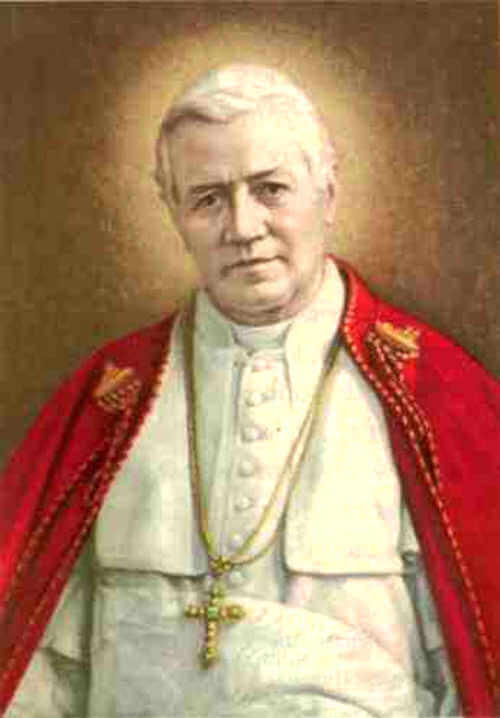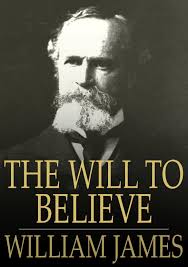The ethics of truth – religion

Knowledge and truth
January 11, 2020
Why can’t they just let Him be?
March 13, 2020“Do you solemnly swear that you will tell the truth, the whole truth, and nothing but the truth, so help you God?”
This classic oath is still sworn countless times every day. There have been objections focusing on its religious character; affirmations have been made possible from the 17th century onward. In the United States, either “so help you God” or “under pains and penalties of perjury” may be used. Here we see a very peculiar example of the Christian truth monopoly: the irreligious are faced with threats of ‘pains and penalties’, but for persons either having – or pretending to have – a Christian conscience, these are not considered necessary: God is their witness.
But there are Christians who refuse to take the oath referring to the Bible, James 5:12:
“But above all things, my brethren, swear not, neither by heaven, neither by the earth, neither by any other oath: but let your yea be yea; and your nay, nay; lest ye fall into condemnation.”
Some denominations hold that taking an oath leads to a double standard of truth: after all, a true Christian never lies. The question about which is the more righteous position I shall leave aside. Far more important here is what they have in common: the belief that Christians are morally superior to the irreligious in matters of truth. This is contrary to the principle of equal justice. The better solution is to leave the decision about the religious component to the person taking the oath, as is common in most European countries. There, the witness is asked to swear that she will tell the truth, whereupon the person answering may choose from ‘so help me God’ and ‘I promise’.
From the Renaissance onward, when the moral superiority of Christianity became challenged by humanism and rationalism, new foundations for universal morality were sought – see: The truth of ethics. Some – like Kant – claimed to have found them, others – like Nietzsche – said there weren’t any. In general, philosophers failed to conceive a generally accepted concept of secular morality that could compete with religion-based morals; these continued to hold sway.
The Christian truth monopoly

In The metaphysics of truth we saw Jesus offering himself as a pathway to truth, to then become part of the Holy Trinity, where God, Christ and the Holy Spirit became one with truth. Thus, truth rose to the highest thinkable metaphysical rank. The first writer to use the term ‘trinity’ was Tertullian. Although pagan Greek philosophers might have conceived of truths, for Tertullian these were now morally owned by Christianity. Once it became the state religion in 395, Christianity monopolized truth, putting an end to the moral pluralism of the later Roman Empire.
Tertullian is also said to have coined the expression “Prorsus credibile est, quia ineptum est”, tendentiously translated as: “It is immediately credible, because it is silly” This became then simplified to “Credo quia absurdum” – “I believe because it is absurd”, was then misattributed to Saint Augustine – by Voltaire – and wrongly quoted by many critics of religion up to the present day. A better translation is: “It is to be directly believed, because it is unable to explain itself.” God cannot explain himself directly and therefore faith needs to be reinforced by reason to understand God from the existence of the world:
“For since the creation of the world God’s invisible qualities — his eternal power and divine nature — have been clearly seen, being understood from what has been made, so that people are without excuse. “ – Romans 1:20.

This is only one of the biblical sources for the cosmological argument of Thomas Aquinas that we saw in Why can’t they just let Him be? God’s existence cannot be proven, but the being there of the world makes his existence obvious. In 1910 pope Pius X paraphrased the above quote for his Anti-Modernist Oath, that until 1967 all Catholic clergy had to take:
“God, the origin and end of all things, can be known with certainty by the natural light of reason from the created world (cf. Rom. 1:20), …”
So, Pius X unscrupulously stepped up from “God’s invisible qualities” as mentioned by Saint Paul to “can be known with certainty”. He left out the intolerant essence of the quote: its tail. Those denying God are “without excuse”, in spite of the lack of logical proof for God’s existence.
The quote from Romans 1:20 speaks of “invisible qualities (…) being understood from what has been made, …” and is therefore an example of essentialism – explaining God from his qualities or properties, such as the power to create.
Origin and end

Part of the idea of God from the second quote, depicting God as “the origin and end of all things” – comes from Neoplatonism, like much other philosophical content of Christianity. Its most prominent representative, Plotinus, believed that the material world is bad, while the world of thought is good. Everything ‘emanates’, flows from and ends in the One, the ultimate spiritual source and goal, the ultimate Good. Plotinus also writes:
“The One cannot be any existing thing, nor is it merely the sum of all things, but is prior to all existents.”
Simply put: the One is the power beyond all existence. All spirit and matter emanate – ‘flow’ – from and back into the One, but the One has no self-conscience and cannot act in any way; it is neither a creator nor a personal god; the One has no definable qualities. Just like the idea of the material world as bad, this view was useless for Christian theology, that wanted to stipulate that creation mirrors the greatness of God.
Among the better bits that Christian theology took from Neoplatonism was the idea of God as ultimate Good to compensate for the judging, avenging God of the Old Testament. Even more important were its ideas about the immortal soul and the unity of spirit within the One. The human soul can directly experience, or rather, take part in the One:
“We ought not even to say that he will see, but he will be that which he sees, if indeed it is possible any longer to distinguish between seer and seen, and not boldly to affirm that the two are one.”
Plotinus is reported to have experienced this state at least four times during his lifetime. The human soul as directly taking part in the One reminds us of the thoughts of Mulla Sadrā we met in Why can’t they just let Him be?, based not on essentialism, but on existentialism. In spite of being fundamentally opposite, these ‘truths’ were gratefully combined in Christian theology. Although mystic unity of the soul with God became very important for some highly spiritual Christians, for the rank and file of believers, the Church stuck to explaining God’s existence from his properties through simplified logic. Equally important was to picture God as personal: God hears prayers, sends blessings and condemns sinners – for example people who break their oaths.
Poisonous narrative
It is hilarious to try to evaluate the Christian narrative by its effects on mankind across over two millennia of history, even more if undertaken by somebody who believes in God, after all, there is no such thing as unbiased faith. Although many try to rise above this problem, theologians often conflate the acts of God and those of Christianity as an institution, since for them God-sent and man-made are indistinguishable: acts of God can only be materialized through his creatures. If at all we would like to say something about Christianity, or any other religion, this can only be done by a non-believer whose starting point is the denial of absolute truth.
But rather the opposite happened. The Christian narrative as absolute truth and its dogmatic intolerance for diverging views strongly influences many people during their childhood, burdening them with a dogmatism they have to deal with before they might move on to open-mindedness. This dogmatism is not restricted to religious beliefs; it determinates people’s overall concept of truth.

The problem was sharply analyzed by William James in his book The Will to Believe. Humans cannot believe of disbelieve at will. Disbelief may be tackled by scientific proof, but if this is impossible, the passional human nature must decide an option between propositions. When scientific proof is possible – possibly showing different truths –, a dogmatic position is less harmful, but when the question is of metaphysical nature, the question simply must be decided on – postponing it is just as passional. Therefore, James defends a pluralistic and moralistic, pragmatic religion: “If the hypothesis of God works satisfactorily in the widest sense of the word, it is true.”
The question remains, however, for whom it works and in what way. Religions are not only sets of beliefs, but also institutions governed by the will to power, first of all power over the minds of individuals. Religions, as institutions, are barely able to rethink their ethical foundations, not only because this might threaten their existence, but first of all because they believe in absolute truth.




